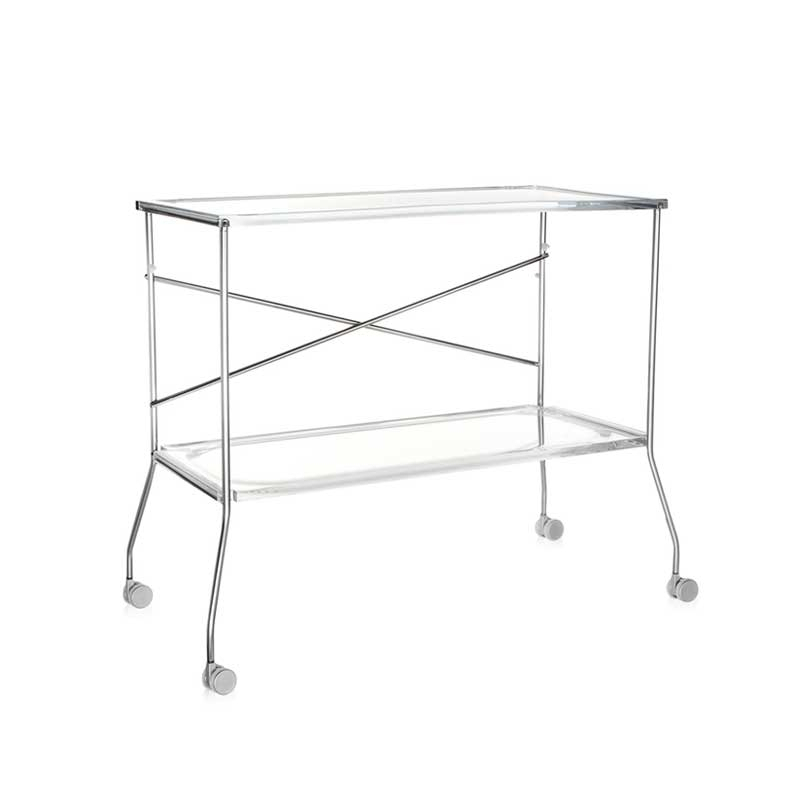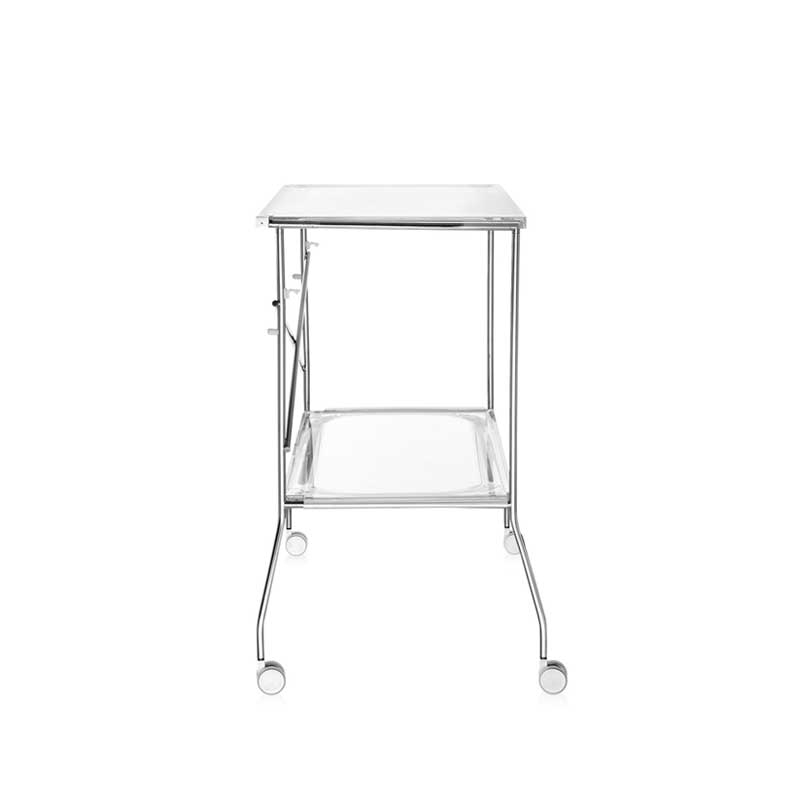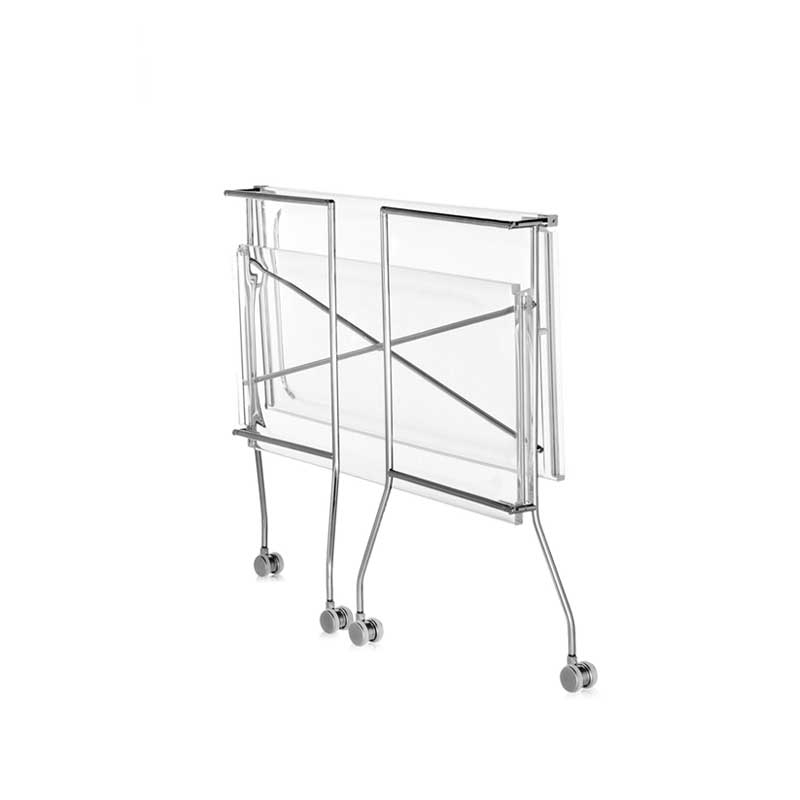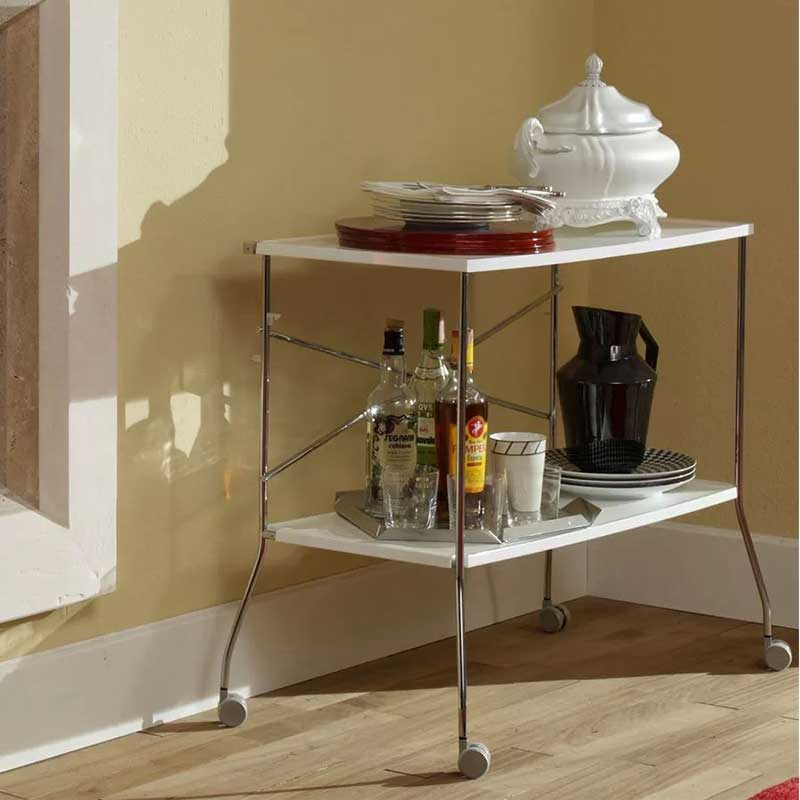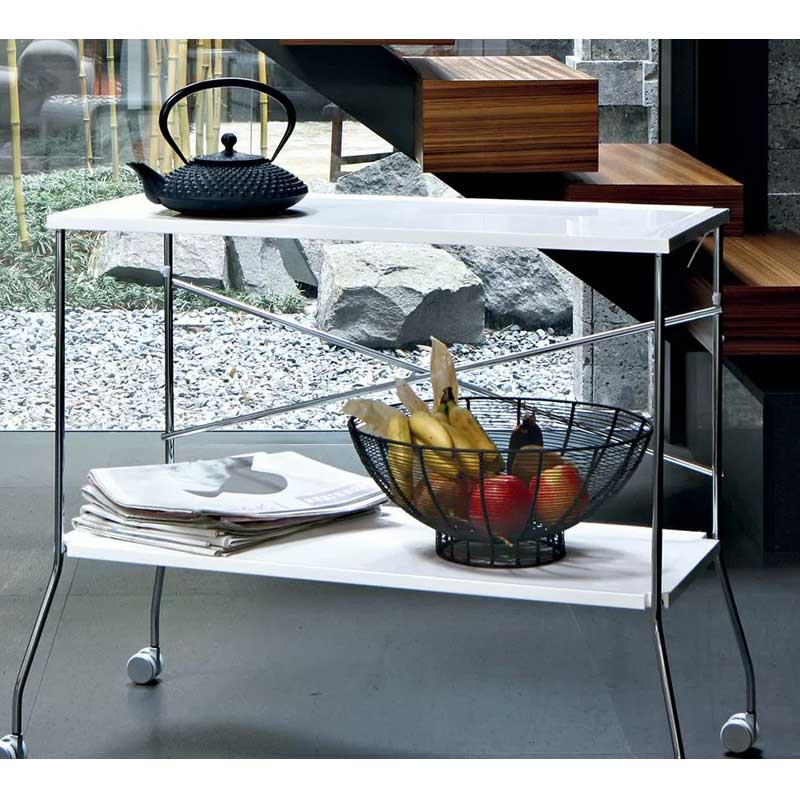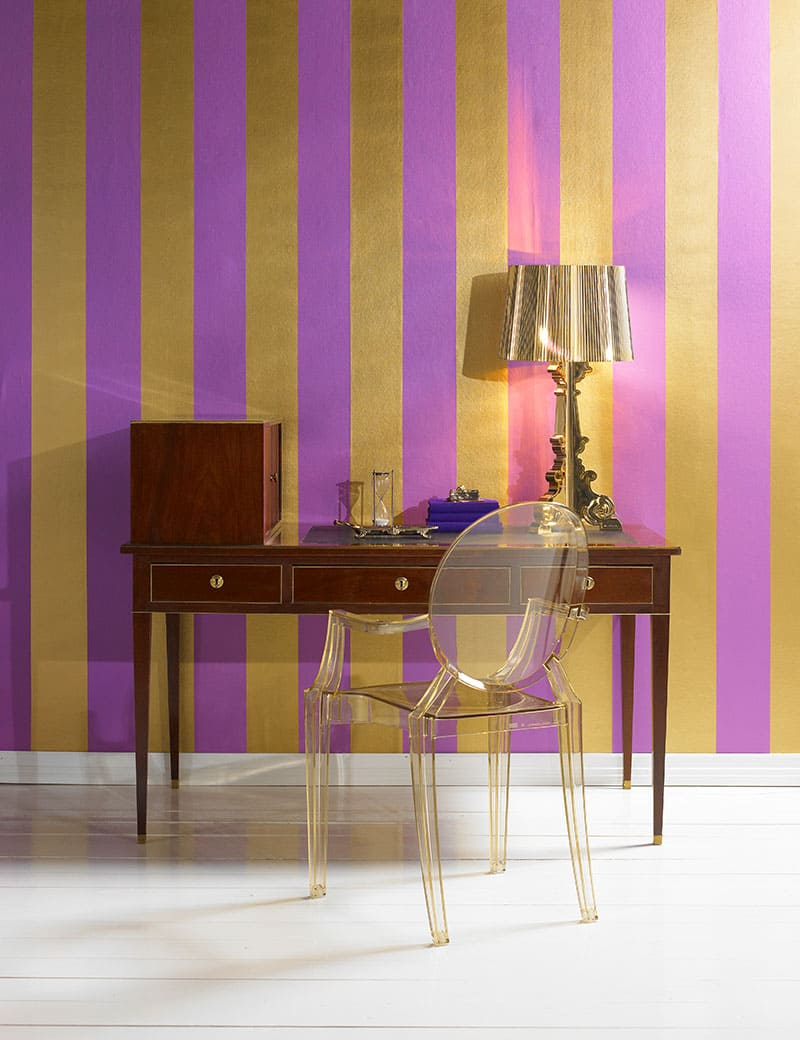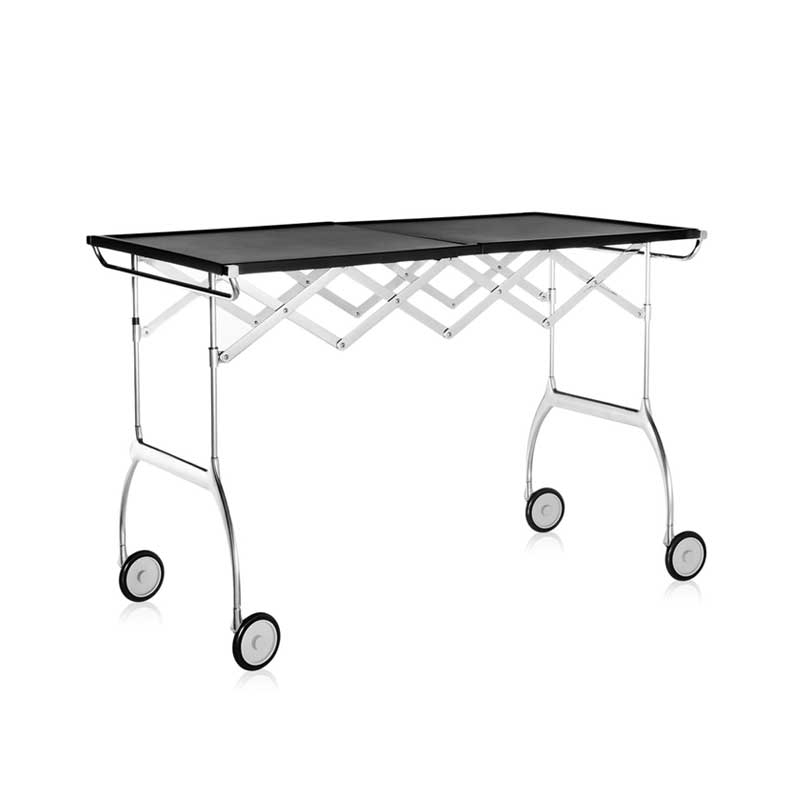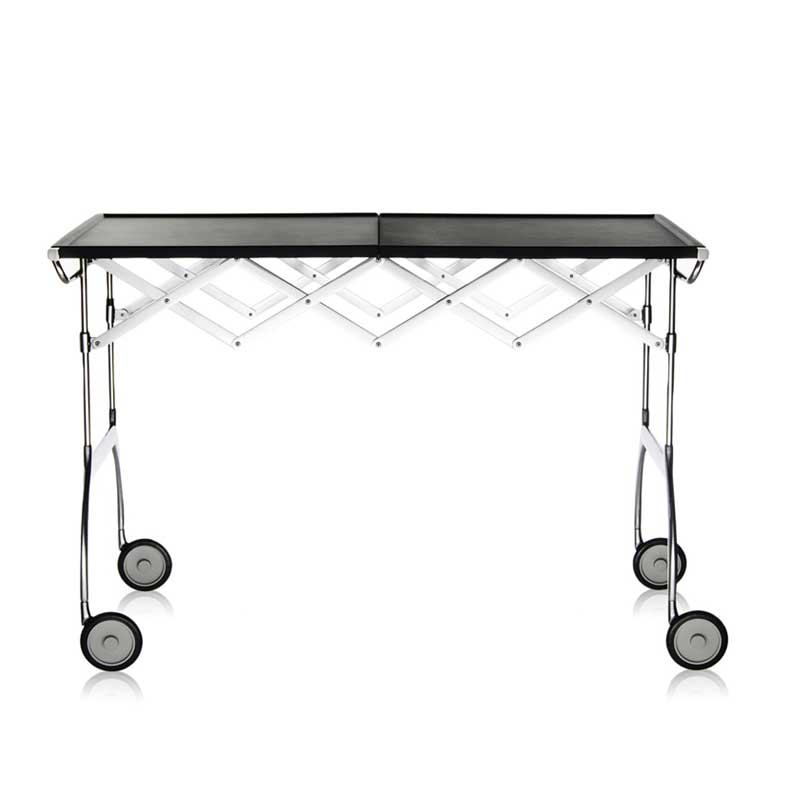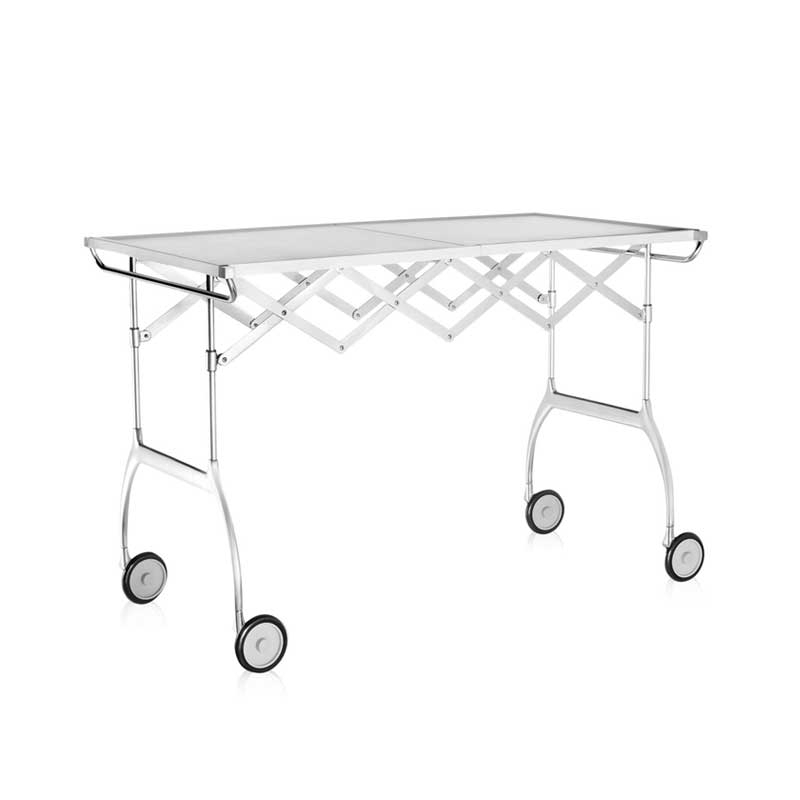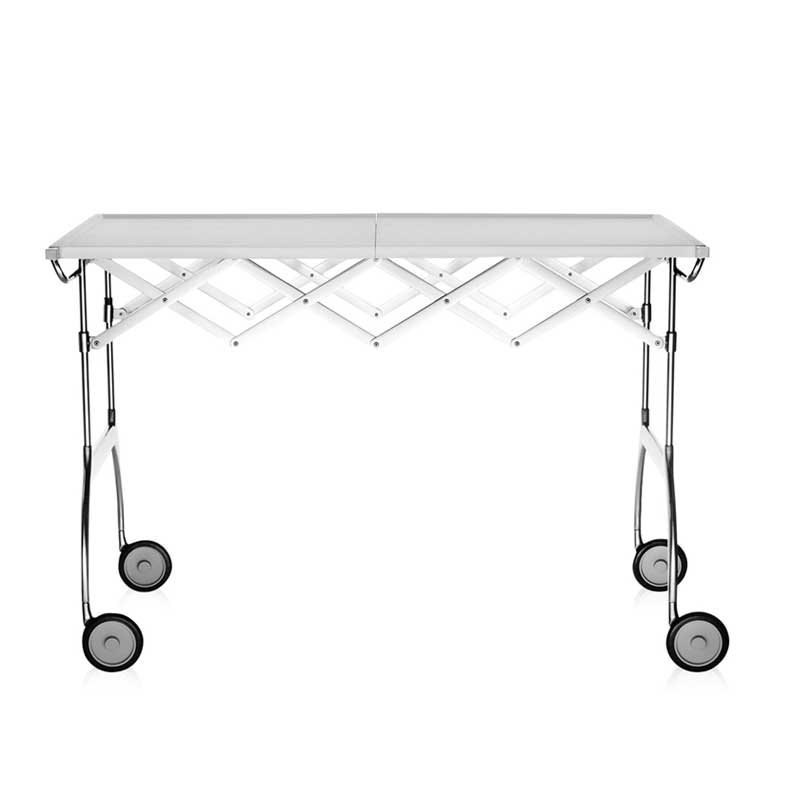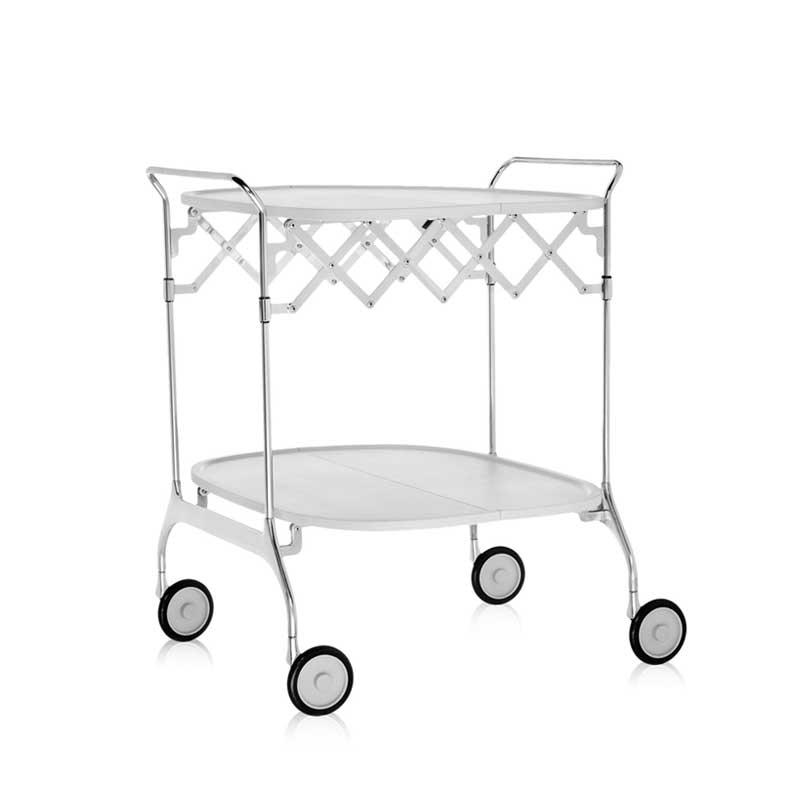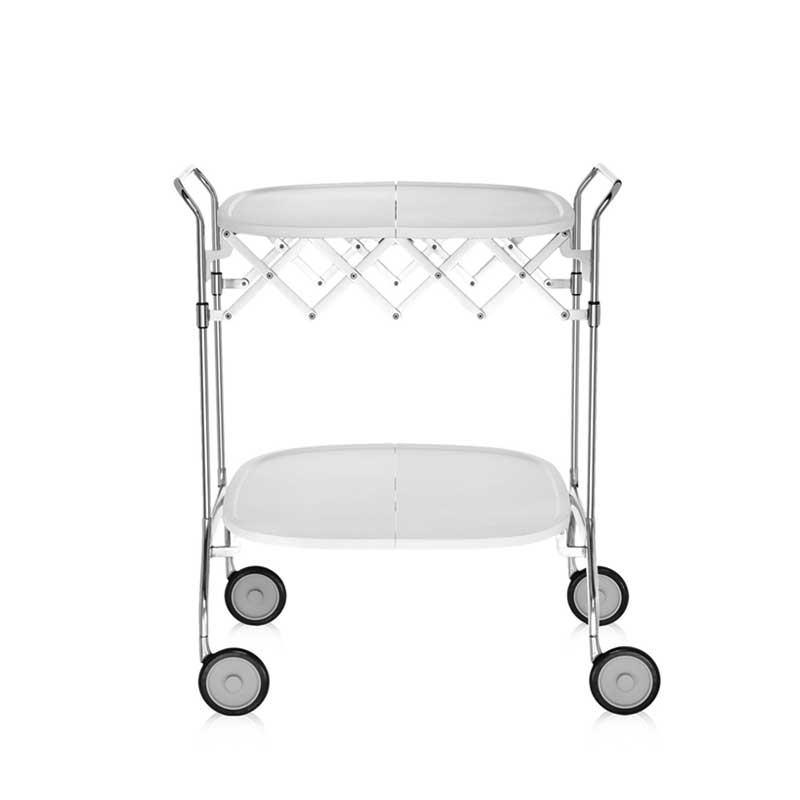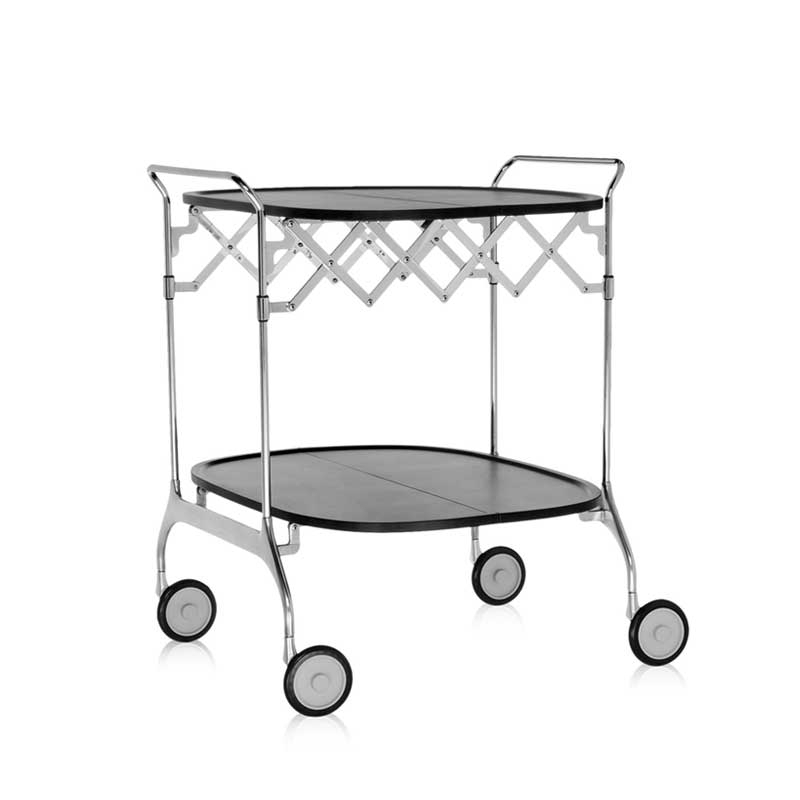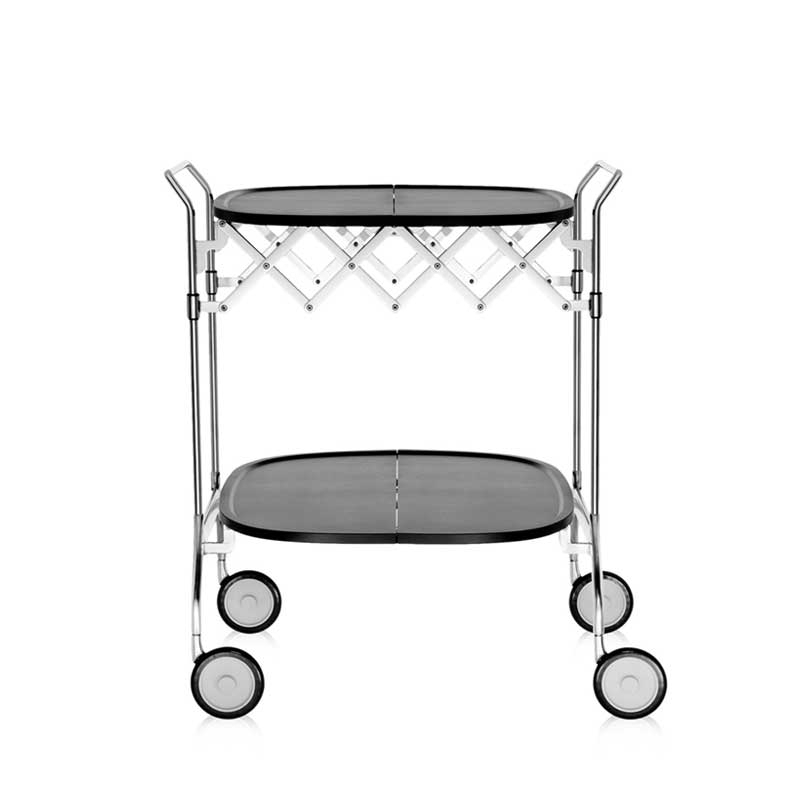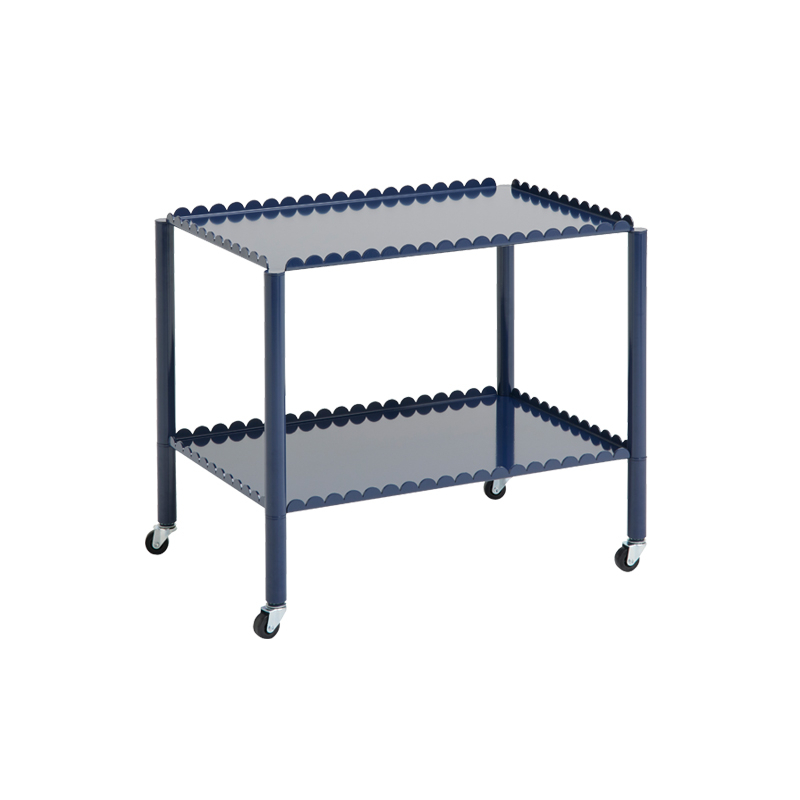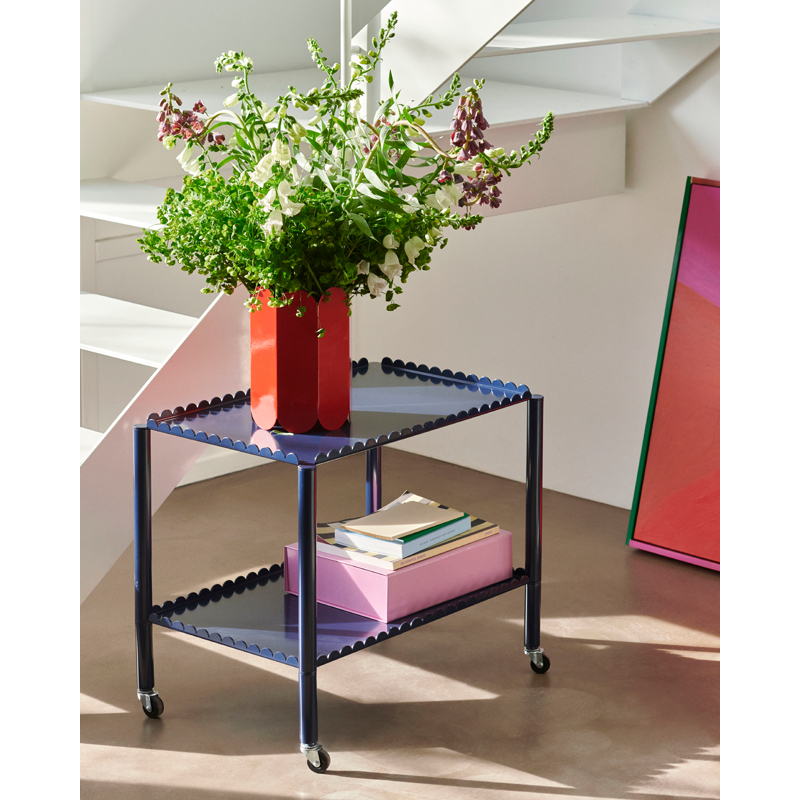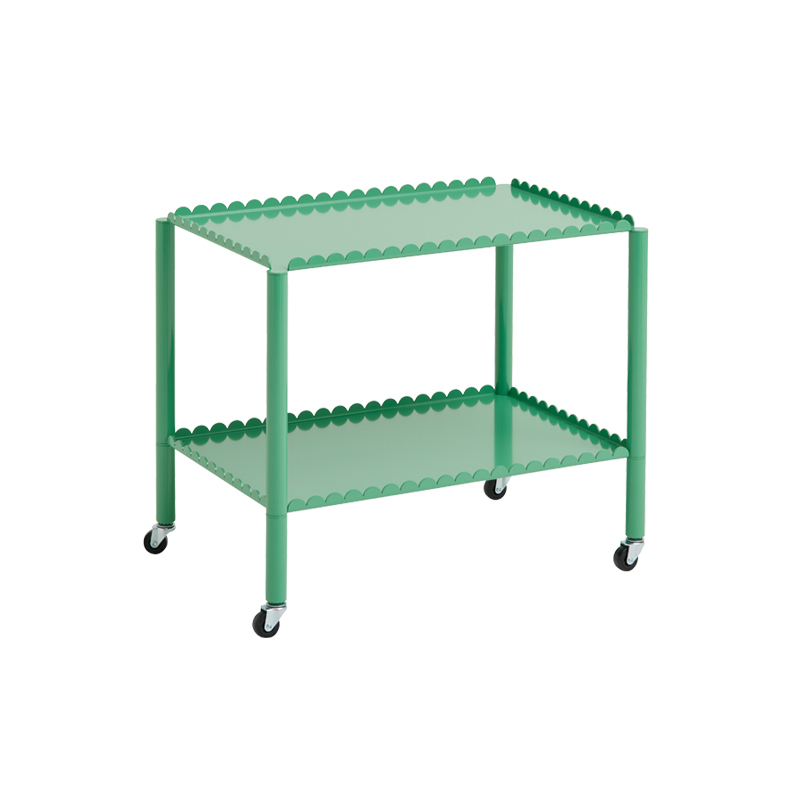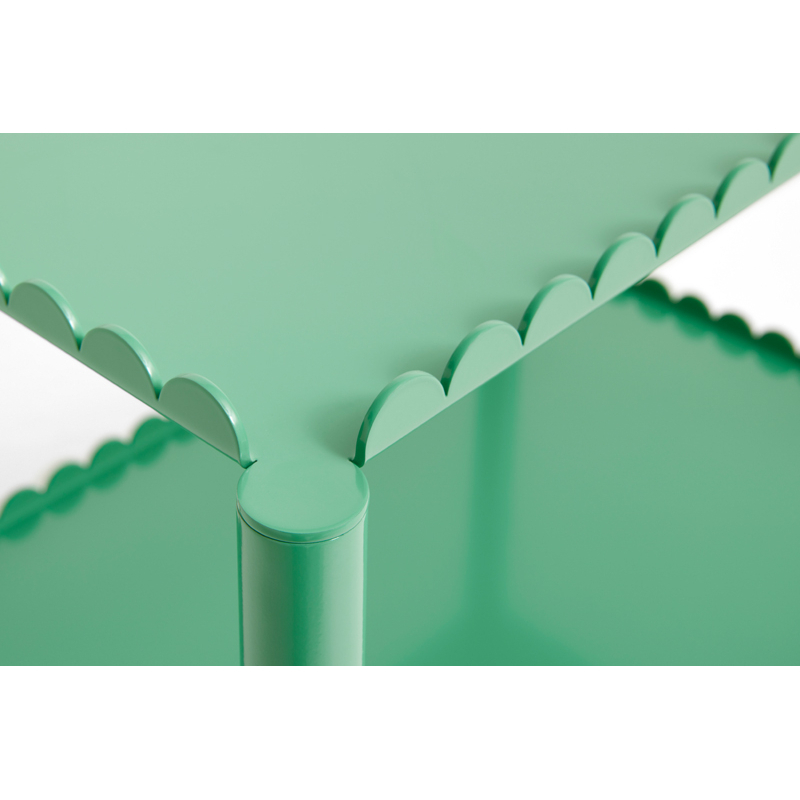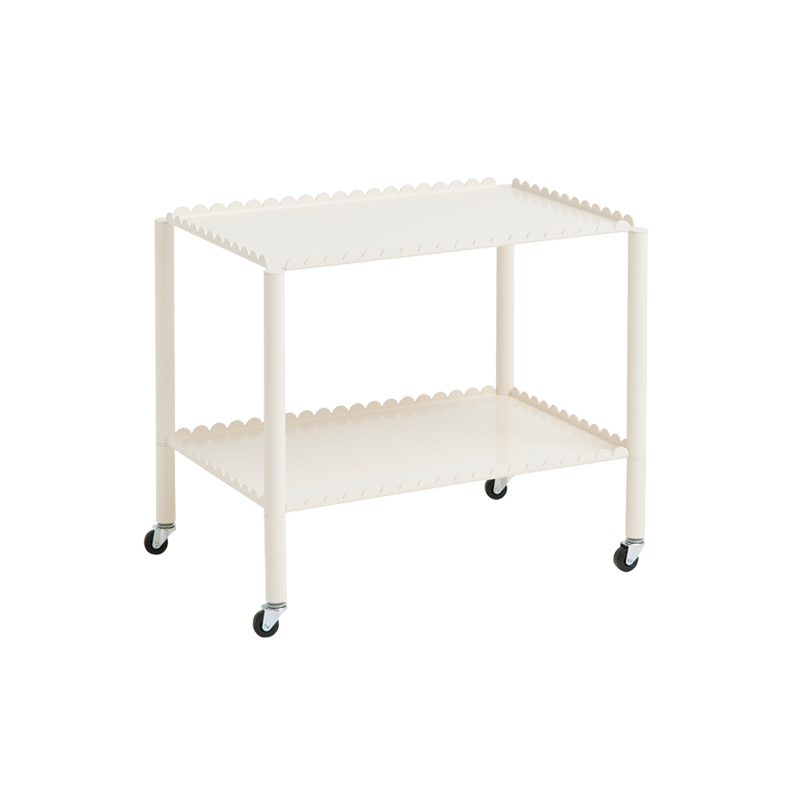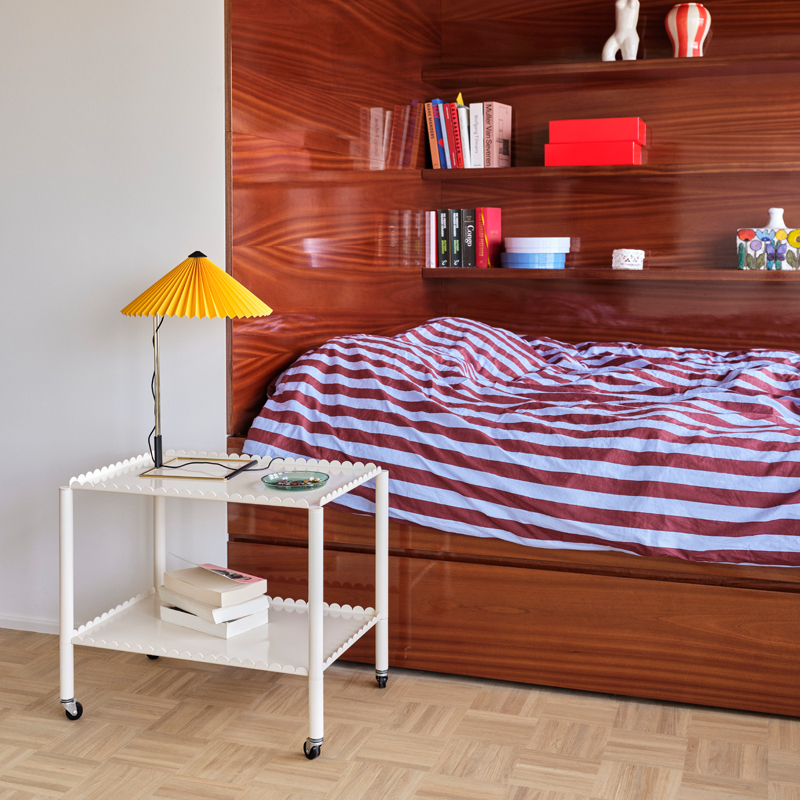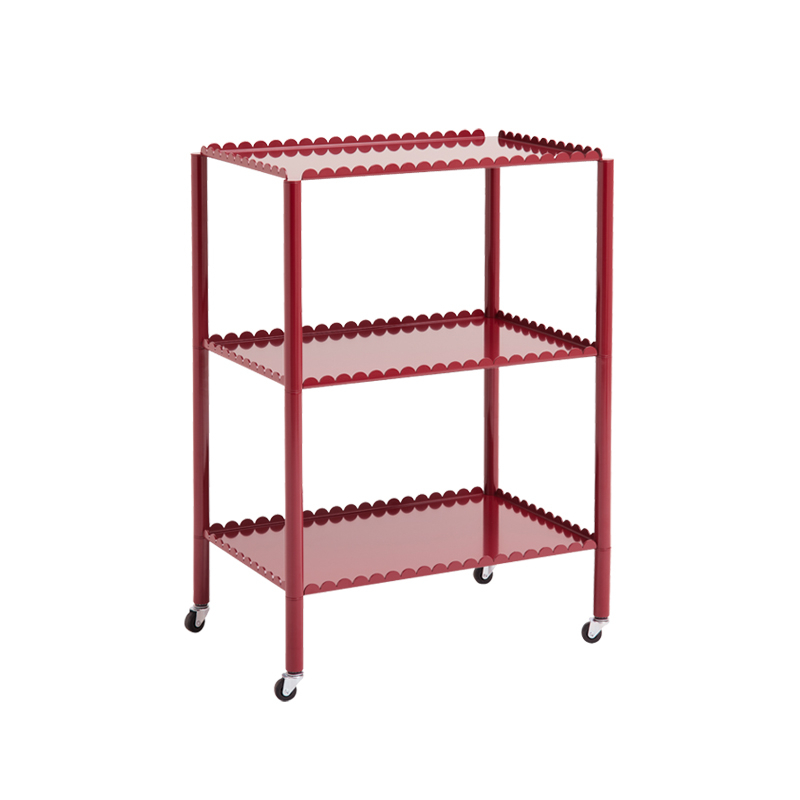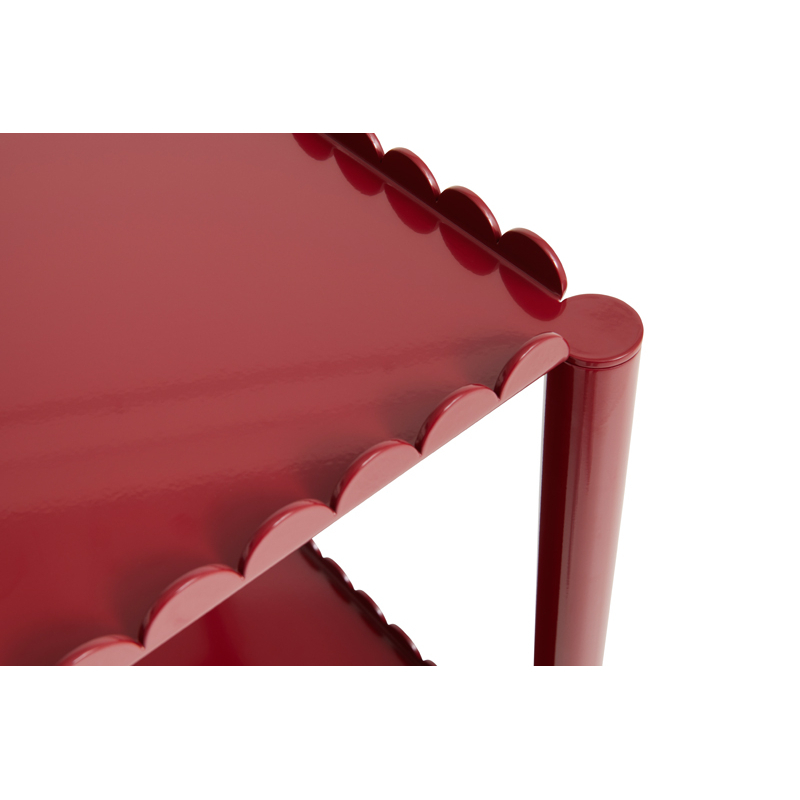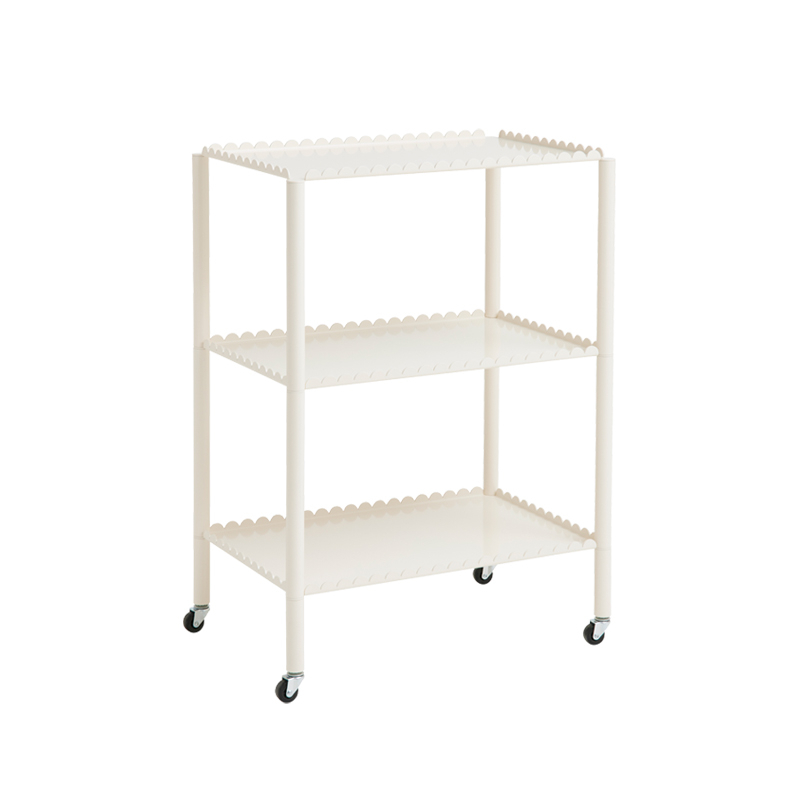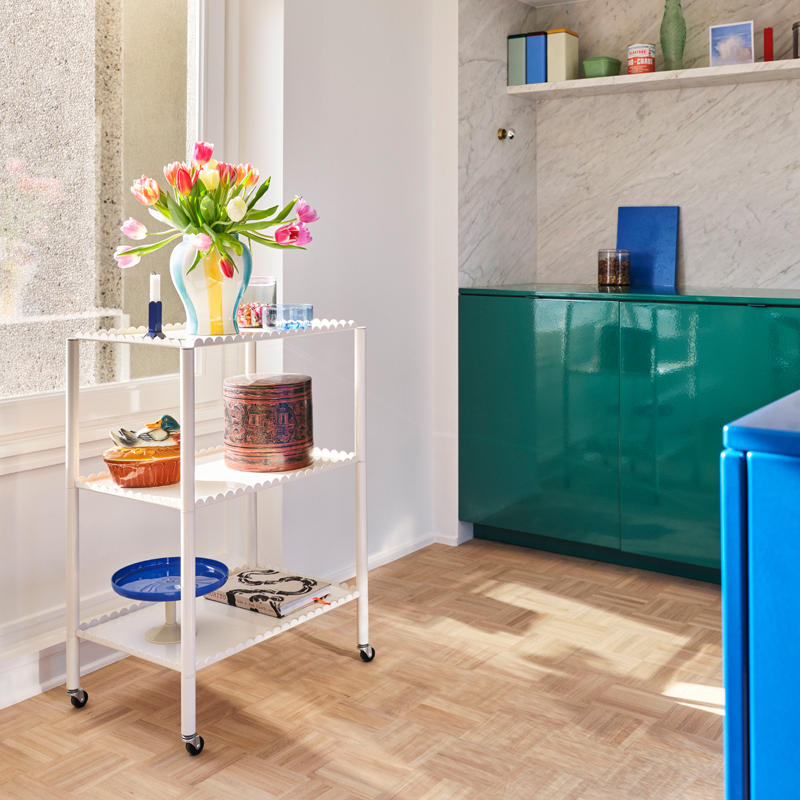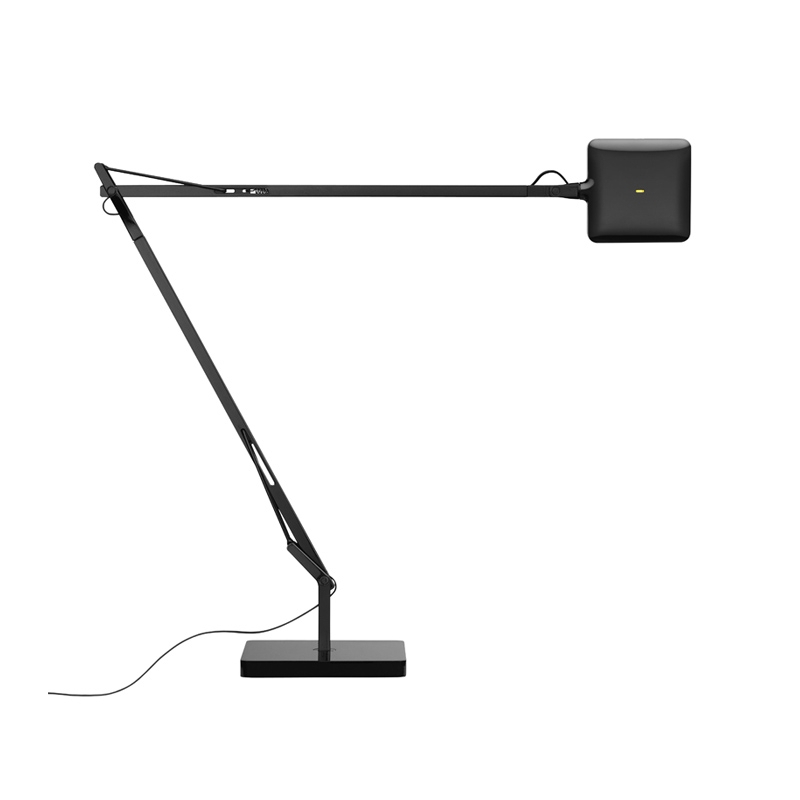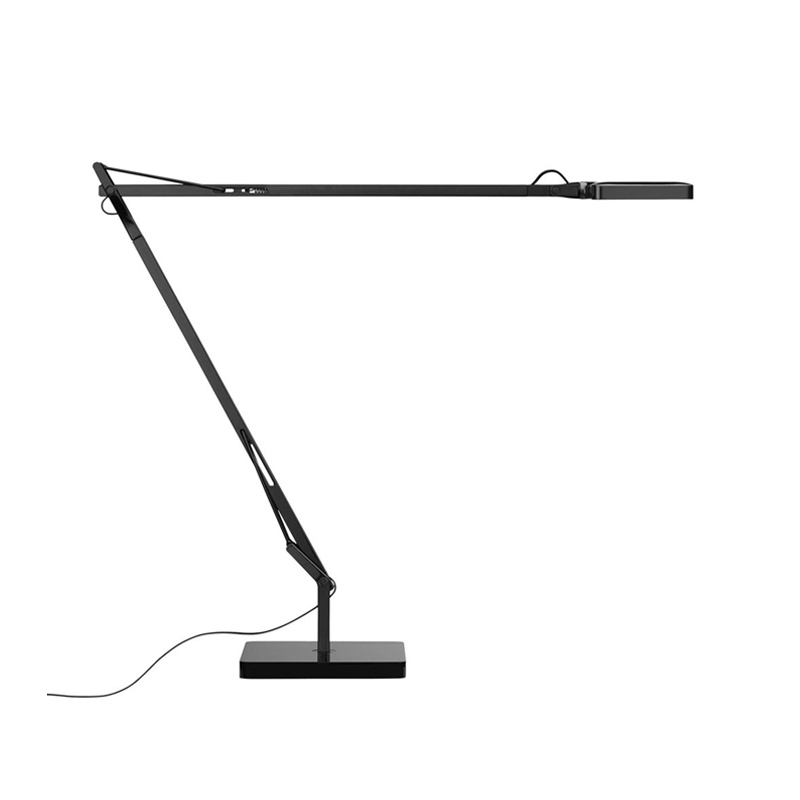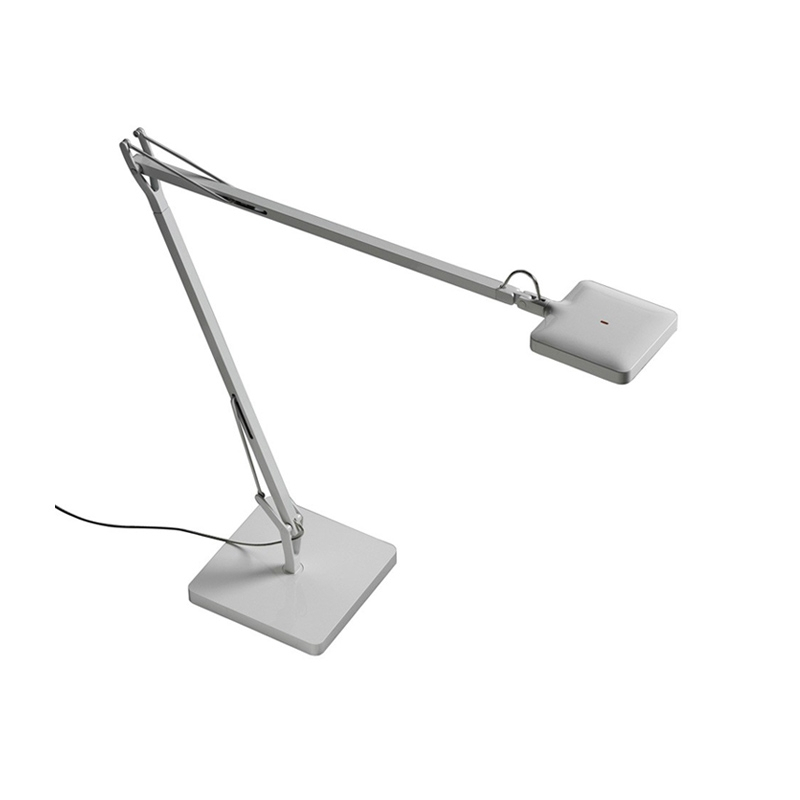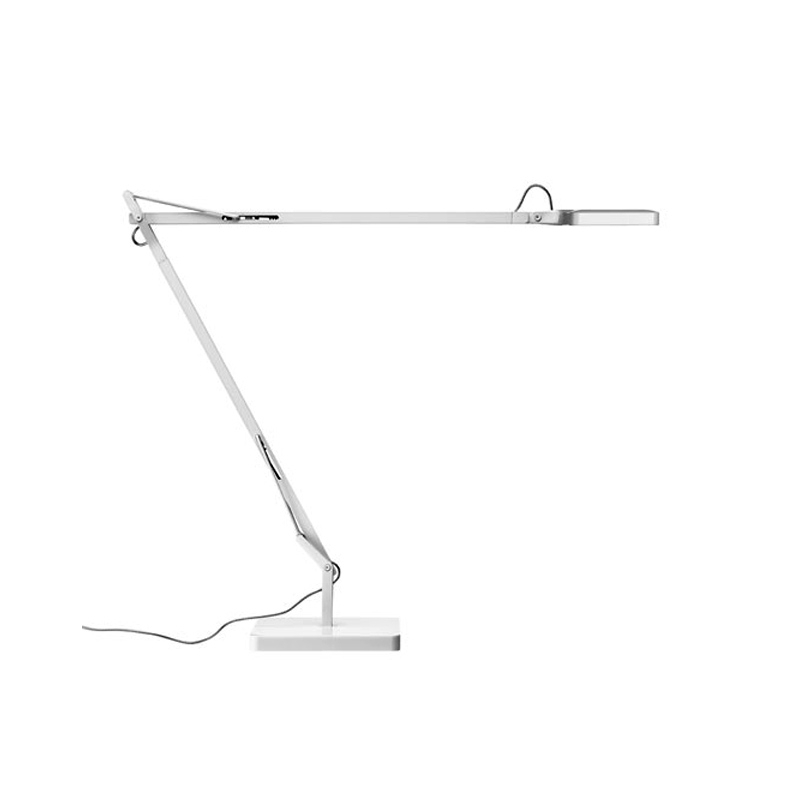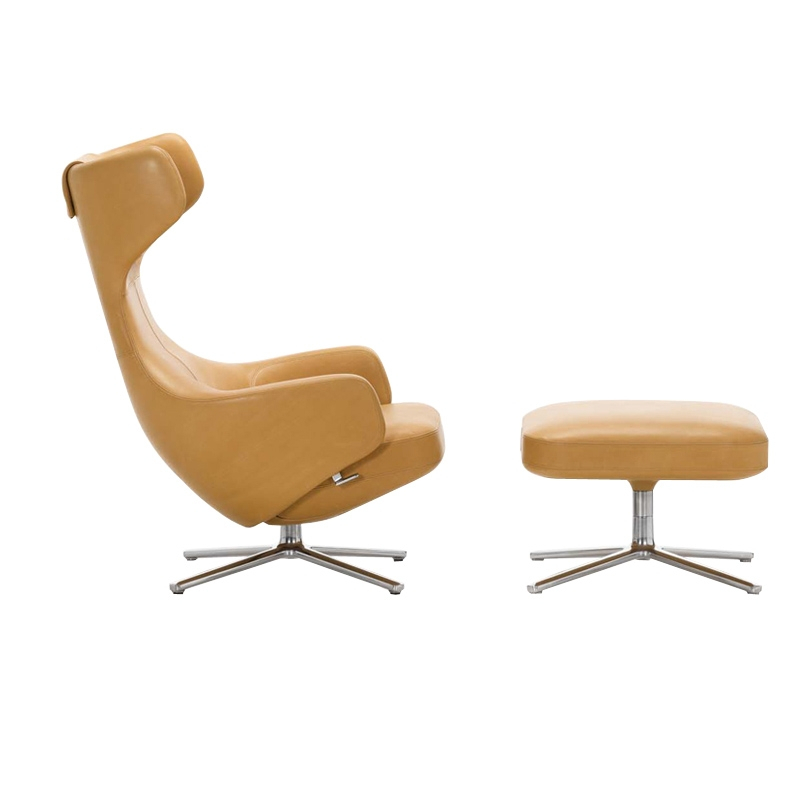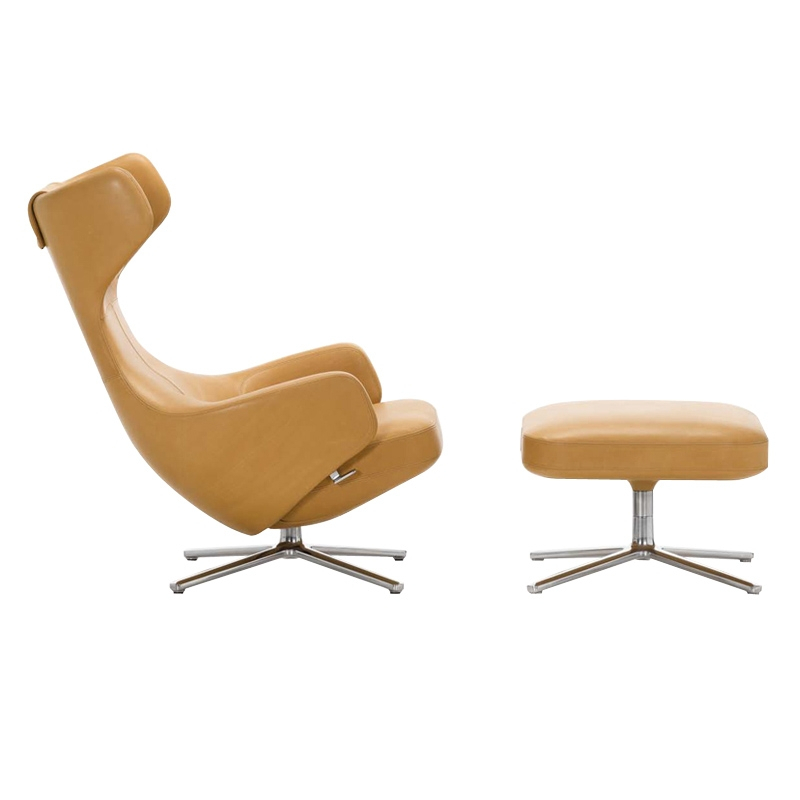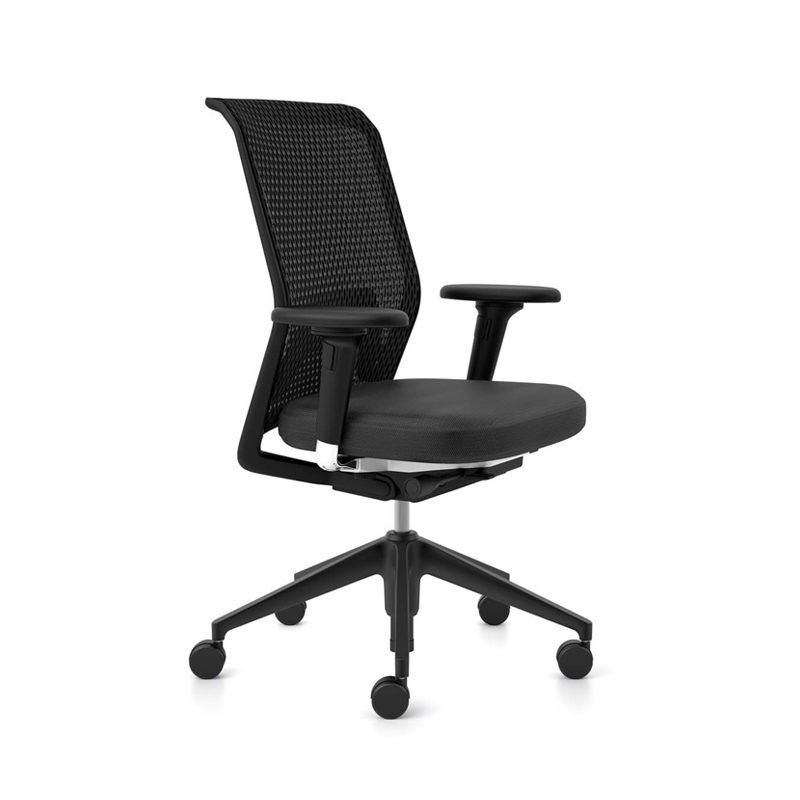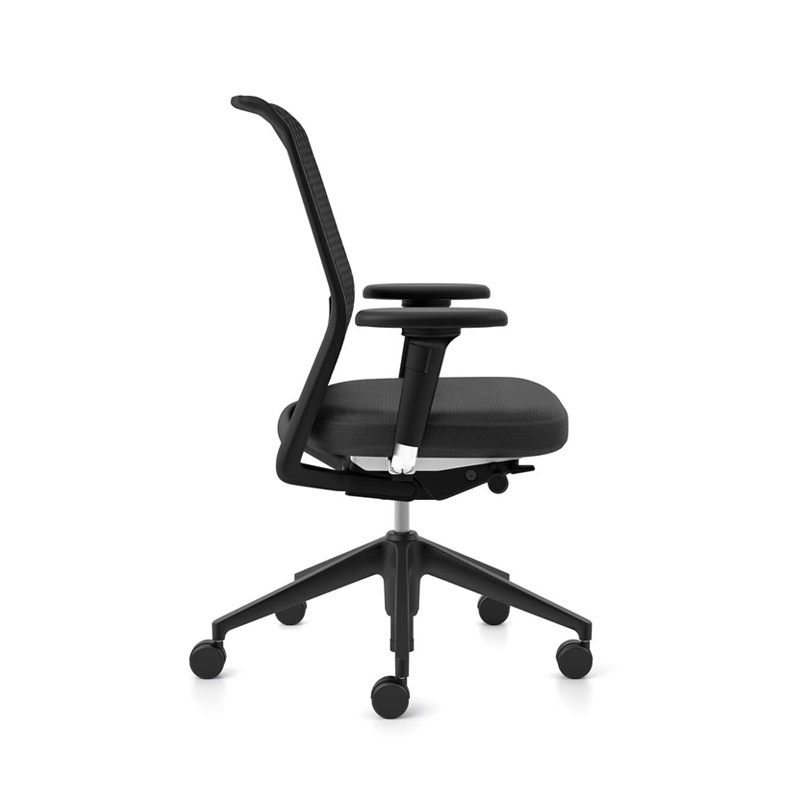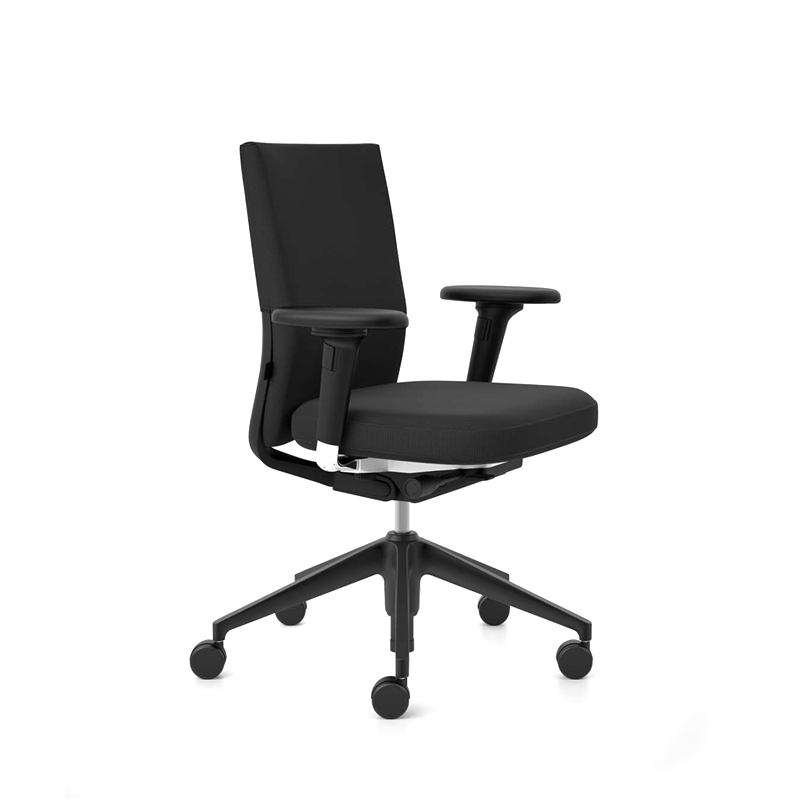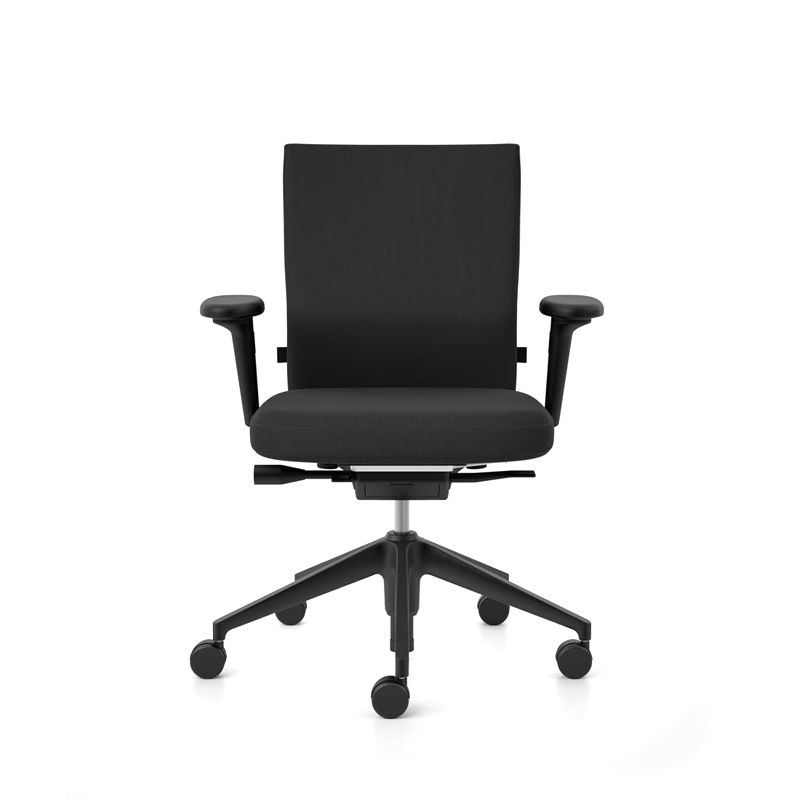- wishlist
-
Cart
Your cart is empty.
menu overlay
menu overlay
Already a customer?
New customer?
Enjoy all the benefits we offer and track your purchases in the order history.
Registermenu overlay
Reset my password
You will receive a link by email to reset your password.
Description
Designed for Kartell by Antonio Citterio, Flip is a folding trolley that combines a metal frame with clear, black, or white plastic tops. With folding tops that can be folded independently of each other (top or bottom only), the Flip trolley successfully pairs functionality with aesthetics. The wheels make it very easy to move, and it can be used either as a trolley (ideal for drinks and buffets) or as a coffee table, making it an ideal addition in front of a sofa. Flip can also be folded: when closed, it takes up very little space and is extremely easy to store.
Color
Cristal
Colour
white
Material
plastic
Dimensions
l 80cm x D 42-10cm x H 72cm
Finish
polycarbonate, steel
Notice
What you think of it
Delivery Terms
Delivery possible within 48 hours for in-stock products.
You will also like
By the same designer
menu overlay
Quote request
You will receive a response from us within 24/48 hours
Your contact details
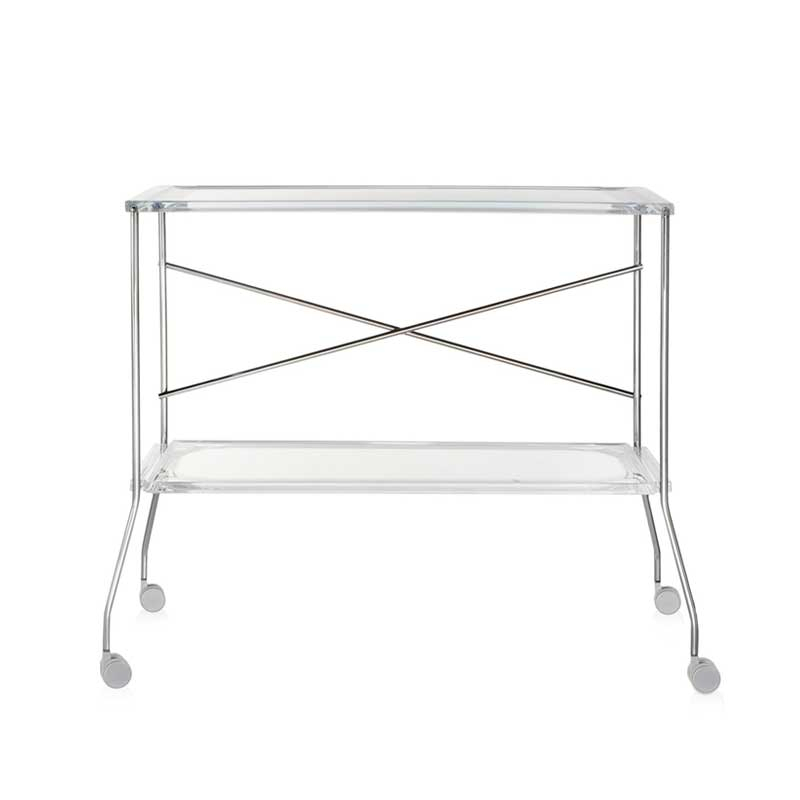
Trolley
FLIP Crystal
KARTELL
Color :
Cristal
€979.00 TTC
€979.00 HT
In stock
In stock
€979.00 TTC
€979.00 HT
Total items :
€979.00
Taxes
0 €
Total (VAT incl.)
€979.00




